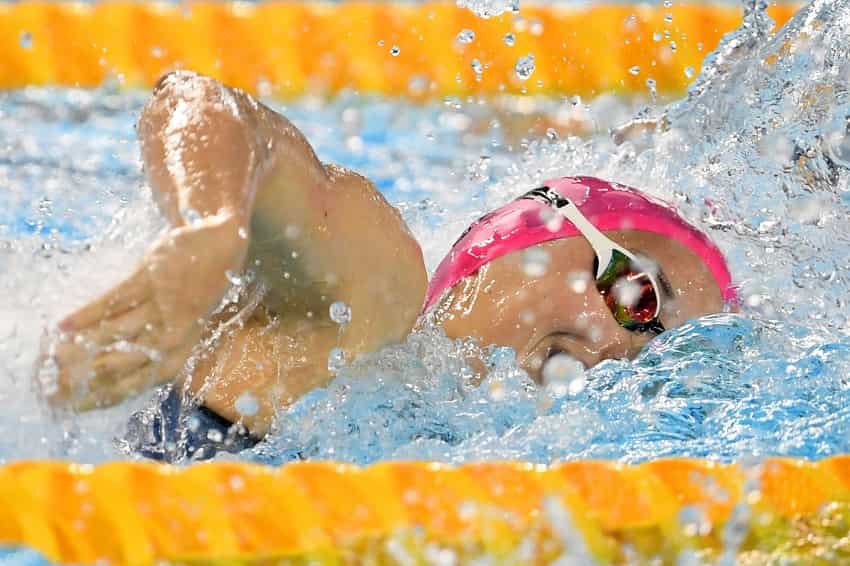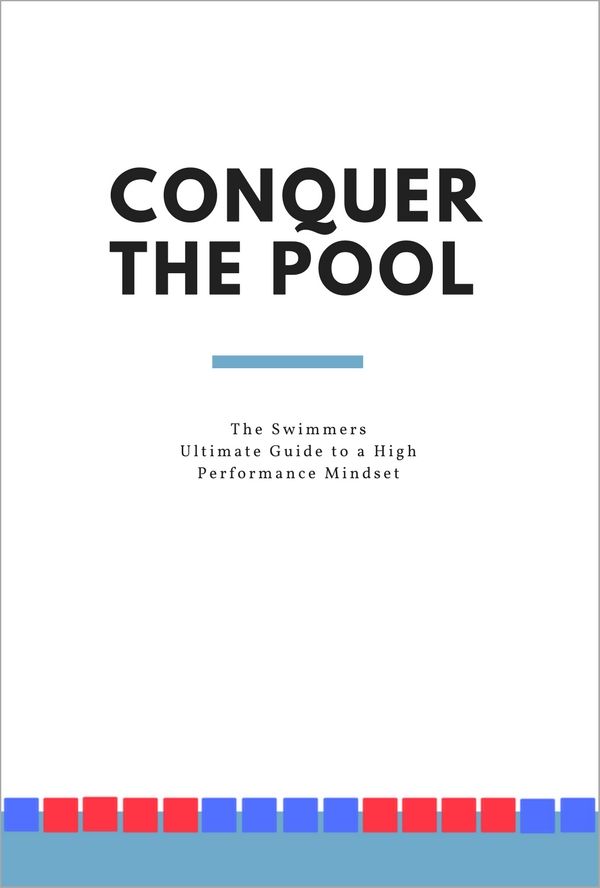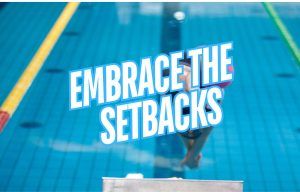Big goals are great. But often, open goals, or “curiosity goals” can be just the thing we need to accomplish hard things in the water.
As a swimmer, you have goals.
These goals tend to be very specific—I want to go to the Olympics. I want to win a gold medal at our big championship meet in June. I want to qualify for JOs.
The big goals are easy to spot.
But it’s the little ones where things get tricky.
Things like:
- I want to start eating better
- I want to swim 30×100 freestyle on 1:30 holding 1:10s or faster
- I need to become a better dolphin kicker
These goals, while somewhat specific and clear, carry with them an amount of pressure that doesn’t work for everyone and doesn’t work all of the time.
Especially swimmers who are just starting out or who are trying to make explosive leaps in training and ability.
Here is why you should try using “curiosity goals” instead of SMART goals for when the struggle feels extra struggley.
The problem with traditional goal setting
Goal setting is something that works. Research over the years has found that setting SMART goals in the water, including writing them out, having accountability buddies, and so on, can improve performance.
But goals often leave out the process of trying to accomplish something.
Goals give you the destination, but they don’t include directions.
Moreover, goal setting is a piece of mental accounting where we lock in the goal as something we have already accomplished.
The moment we commit to a goal, a part of our brain is registering it as something we have earned.
This is why a lot of ambitious swimmers will set a big goal, step up to the edge of the pool, and then suddenly feel bombarded with fear and hesitation. Fear they will lose the goal they haven’t accomplished yet.
Instead, a curiosity-based approach can help swimmers side-step the fear and expectation that comes with doing challenging things in service of our big goals.
- “I wonder how many meters of race pace training I can do today?”
- “I wonder how many practices I can make this week?”
- “I wonder how healthy I can make my dinners this week?”
- “I wonder how many push-offs I can do with five dolphin kicks at practice today?”
This approach to goals is something I use regularly when I catch myself procrastinating or feeling intimidated in the water. (In real life, too.)
I think the reason it works so well is that it adopts a “started from the bottom” kind of mindset where we have nothing to lose. In a sense, curiosity helps you adopt the mindset of the underdog.
Instead of comparing ourselves to where we think we should be, we are comparing ourselves to where we were.
And honestly, this looser approach is more fun, because it’s about excitement and curiosity instead of potential failure and loss.
(Research has found that “open goals” are more enjoyable and boosts performance for people just getting into shape versus traditional SMART goals.)
An open-ended approach, a mindset where you are simply seeing what you can do, will almost always result in you surprising yourself. Curiosity isn’t about completely removing expectations, but removing the weight of expectation when it doesn’t serve you.
Look, there will be times where you are sufficiently prepared for the SMART goals.
You show up to practice fully trained and ready to do work on the main set. You stroll out onto the pool deck in competition, knowing you have done the work to smash your PB.
In these moments, it’s helpful to have a clear and tangible target.
But there are other times where you need a looser, less pressure-filled mindset so that you can swim your butt off without worrying that whatever happens may or may not match up perfectly to your goals and expectations.
Use curiosity goals as a tool in your high-performance mindset toolbox
After all…
Curiosity makes hard work an adventure.
Curiosity makes tough challenges less intimidating.
Curiosity pushes you towards growth and learning what works.
The next time coach writes up a soul-crushing set on the whiteboard, you want to completely upend your nutrition plan, or you set an audacious plan for dominating your PBs at the end of the season, start with curiosity.
 Mental Training for Swimmers (FINALLY) Made Simple
Mental Training for Swimmers (FINALLY) Made Simple
Whether you are tired of choking on race day, want to finally conquer your mindset so that you can give your PB’s the beating they deserve, or you want to develop a killer game plan for your mindset, Conquer the Pool is your ticket to faster swimming.
“This is the best book I’ve ever seen concerning mental training.” — Ray Benecki, Head Coach, the FISH Swim Team
Used and trusted by some of the top clubs and swimmers on the planet and written with the feedback of 200+ head coaches, Olympians, former world record holders, and NCAA champions.


 Mental Training for Swimmers (FINALLY) Made Simple
Mental Training for Swimmers (FINALLY) Made Simple











